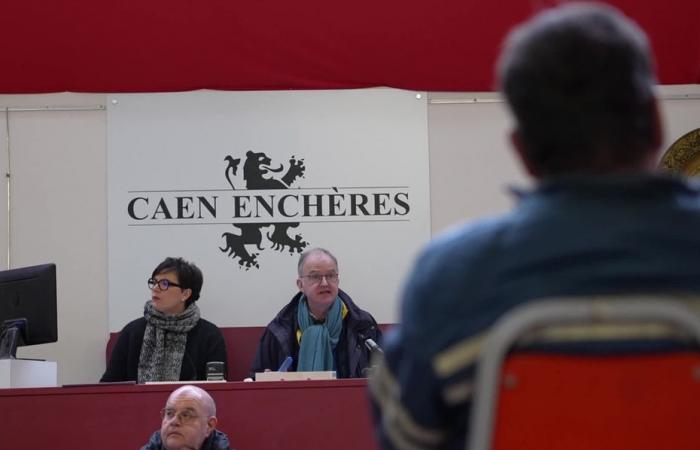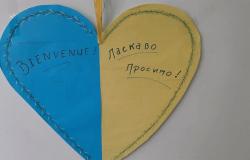
Lots dating from the Second World War, including Nazi objects, were put up for auction on Saturday November 23, 2024 in Caen, sparking indignation among certain people and associations who believe that these sales should be more supervised.
The essentials of the day: our exclusive selection
Every day, our editorial team reserves the best regional news for you. A selection just for you, to stay in touch with your regions.
France Télévisions uses your email address to send you the newsletter “Today’s essentials: our exclusive selection”. You can unsubscribe at any time via the link at the bottom of this newsletter. Our privacy policy
A pair of fur-lined boots, a cavalry coat, gas masks, but also photos of SS soldiers and identity cards of French Jews of the Jewish faith, published under the collaborationist Vichy regime.
The list of objects from the Second World War put up for auction in Caen, Friday November 22 and Saturday November 23 in the evening, is unusual to say the least. Controversy, too.
Lots dating from the Second World War, including Nazi objects, were put up for auction on Saturday November 23, 2024, in Caen.
•
© France Télévisions
On Saturday evening, around twenty buyers were present in the Caen salesroom, while others followed the negotiations online or by telephone. Sales are going well,beautiful posters“and the”nice history medals” are purchased one after the other.
This is precisely what poses a problem for certain individuals and associations, such as Souvenir Français. One of its members, Frédéric Pécout, also an archaeologist at theNational Institute of Preventive Archaeological Research, campaigns to regulate this type of sales.
He analyzes certain objects from the catalog: “CThis card is stamped “Jewish”, these elements were stamped by the Gestapo, we can imagine that these people disappeared in the concentration camps“.
Among the objects sold on Saturday November 24 in Caen, identity cards of French people of Jewish faith, published under the collaborationist Vichy regime.
•
© France Télévisions
“We can ask ourselves questions, particularly when descendants ask us about these public sales, and we can also ask ourselves questions about the interest of collectors in acquiring this type of object.“, he protests.
The possession and sale of Nazi objects and documents is legal, as long as article R. 645-1 of the Penal Code is respected. It specifies that it is forbidden to carry or display objects “recalling those of organizations or individuals responsible for crimes against humanity”, under penalty of a heavy fine.
A photo album of a French militiaman was thus priced from 1 000 euros legally. An interesting object according to the auctioneer, Jean Rivola, because it is “the only one known in the world which unfortunately shows the French who took the wrong side“.
So, how can we decide between historical interest, duty to remember and the risk of maintaining neo-Nazism? ? The auctioneer refuses to sell the items to the wrong people.
Anyone can acquire [ces objets]but this is history that you are buying. Imagine hurting someone with it? No not at all.
Jean Rivola, auctioneer
The lots offered in the Caen sale are not all problematic, and not all to the same degree. Jean Rivola affirms for his part that the majority of these little pieces of history are sold “to enthusiasts who write books, articles, who work every year on what the resistance and occupation were, or to public institutions, which open them to the public.”
Museums often acquire these objects. According to the famous historian and lawyer Serge Klarsfeld, who spoke on the subject for France Info, their owners should entrust them straight away to these institutions, rather than selling them.





